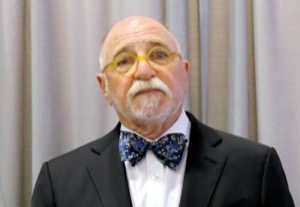General Surgery News recently caught up with Edward L. Felix, MD, at the Society of American Gastrointestinal and Endoscopic Surgeons, in Las Vegas, to speak with him about his recent article on the history of robotic surgery (GSN, September 2021, page 1). Below is a slightly edited transcript of the discussion. Video interviews from the meeting, conducted by Dr. Felix on robotics and other timely topics with experts in the field, can be found at www.generalsurgerynews.com/ Multimedia.
Q: What was the inspiration for your research?
Dr. Felix: As many of you know, I just wrote an article on the history of robotics. Why would I do that? I was never a robotic surgeon and was actually against robotics in the beginning. Yet I began to look at its value and how it has improved, and became extremely interested with how we got to where we are today. So, in my retirement, I decided to sit down and investigate. What I did was look back with Intuitive and review the published literature with the intention to trace robotic surgery from when it began to where it is today. What I learned was that robotic surgery reminds me of a musical group that you think exploded overnight; however, it didn’t happen overnight. Robotic surgery has now taken 20 years to get to where we are today. Although we don’t quite know where it’s going to go, I think it will eventually replace laparoscopic surgery.
Q: What are your thoughts on the cost-effectiveness of robotic surgery?
Dr. Felix: The most frequent question I kept hearing was “Is there value in robotics?” One of my original objections to robotics was that you were essentially taking a Ferrari to go to the grocery store up the block. What I realized was that if you learn to do robotics correctly, the price or cost of that procedure can be the same or even less than its laparoscopic equivalent. But it takes education and it takes a level of skill and efficiency of the surgeon. It will also require Intuitive and other companies to somewhat reduce the cost of instrumentation. There are absolutely surgeons who are doing bariatric and hernia surgeries robotically for the same or even less cost than we can do laparoscopically. Nevertheless, it’s truly dependent on the education of the surgeons in the operating room and the cooperation of the robotic companies.
Q: How do you see the field of robotics evolving over the next five to 10 years?
Dr. Felix: I honestly think we’re still in the infancy of robotics even though it has already been 20 years of growth. What the robots will be able to do in the future is far advanced. This is one of the questions I posed to the mentors or pioneers of robotics in my history article and they all gave me their opinions. I think robotics today is not going to be what we’re going to see in five or 10 or 15 years from now. My own son who is just starting medical school, and will hopefully end up being a surgeon, will be doing surgery in a very different way than we do today—I can’t even imagine it. I think that the view, the techniques, the instrumentation and the feedback are going to be vastly different. Another major advantage that robotics has, even today, is that teaching and learning curves have been greatly reduced because of simulators. Surgeons can now learn in weeks or months to do what took us a year in a fellowship to accomplish. Ultimately, I think robotic surgery is changing the entire platform and therefore thought it was important to document how we got here. Hopefully, someone will carry that history on as we move forward.
This article is from the October 2021 print issue.



Please log in to post a comment